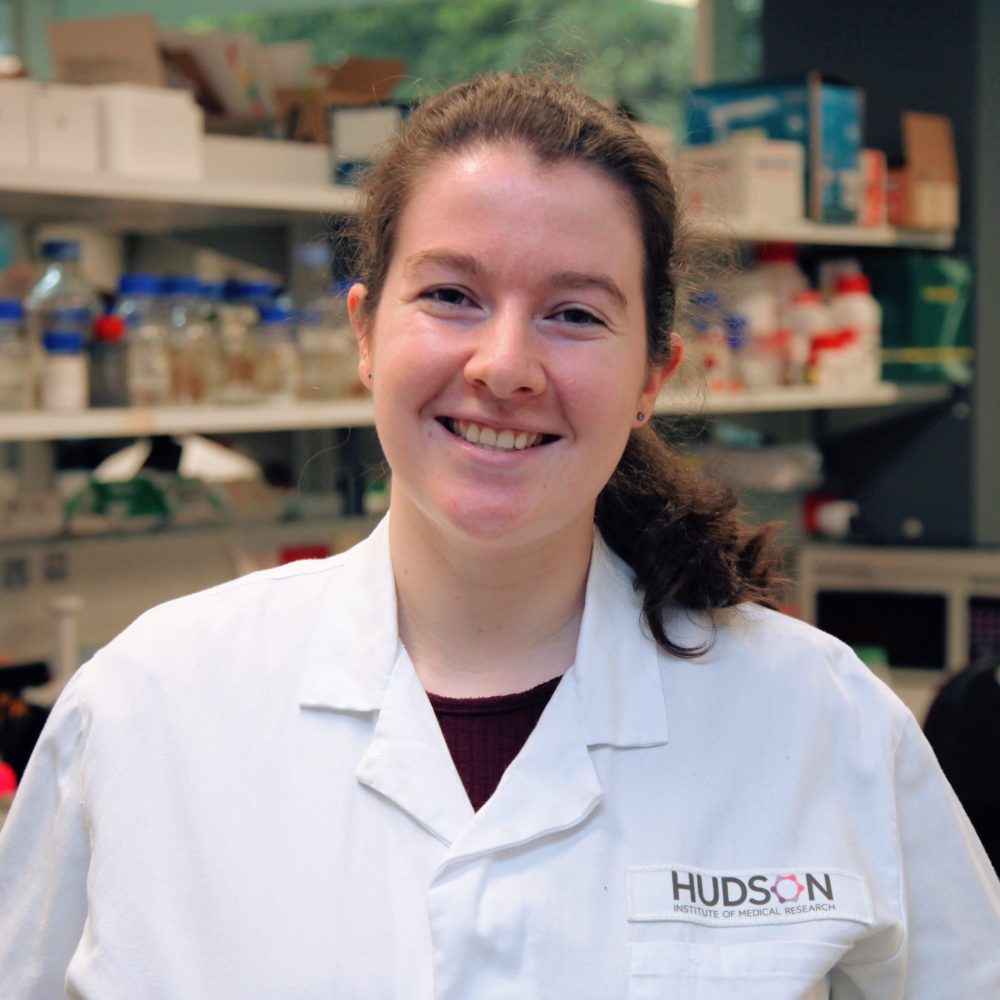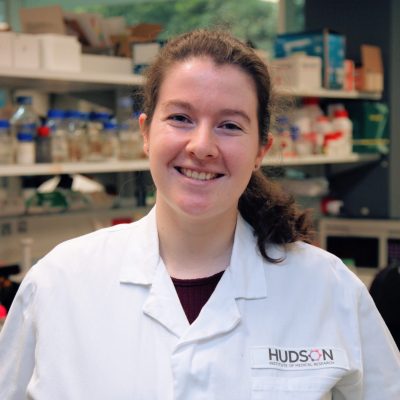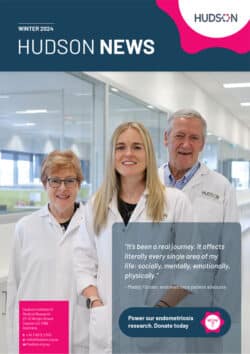Madeleine Wemyss is a member of the Centre for Innate Immunity and Infectious Diseases.


Madeleine Wemyss
Degree:
PhD student
Research Centre:
Area of study:
Salmonella and innate immune signalling
Supervisors:
Year of enrolment:
2019
Why did you choose Hudson Institute and your research group?
I met Dr Jaclyn Pearson at an information night for prospective Honours students at Hudson Institute, and really connected with her passion for (and approach to) scientific study. Although, the research group was relatively young, Jaclyn had already established a wide network of collaborators, as well as a strong skillset of varied techniques that enables her work to be relevant and competitive. I had also heard a lot about Hudson Institute from lecturers and tutors during my degree, and admired the Institute's commitment to high-quality, translational research. After successfully completing my Honours year with the Pearson Lab, I found myself keen to continue my project into a PhD and knew that this was the right group for me!
What is your research about and what do you hope to achieve?
My research explores changes in the host cell environment during infection with a Gram-negative pathogen, Salmonella enterica, which can cause food poisoning and even cases of severe gastrointestinal disease in humans. Salmonella uses a needle-like protein complex on the bacterial membrane, called a Type III Secretion System, to transport virulence proteins into the human host cell. These virulence (or effector) proteins then make changes to our immune signalling and programmed cell death pathways, turning these mechanisms on or off to promote bacterial survival. By investigating the ways Salmonella makes these changes, I hope to contribute to our understanding of bacterial pathogenesis, and eventually inform the development of new therapeutics against these bacterial species.
What is it like being a student at Hudson Institute?
Being a student at Hudson Institute has been an immersive and enjoyable experience. I've received hands-on experience in maintaining cell cultures, performing new molecular biology techniques, planning experiments and analysing results in the lab, as well as experience with presenting to both my lab group and to the wider Centre. Attending the weekly CiiiD seminars has allowed me to gain a better understanding of the research performed by members of my Centre and other groups, while the wider Institute seminars and guest speakers have broadened my knowledge of what is possible as a research scientist. As well as these professional opportunities, I’ve been able to connect with other students from my research group and my Centre, and have made friends across the Institute through my involvement with Hudson Institute Student Society (HISS).
What opportunities have you had at Hudson Institute?
Throughout my time at Hudson Institute, I’ve been able to network with researchers and students from the broader Monash University and biomedical research community, and have been able to meet some incredible scientists in my field. I’ve attended local conferences including the Lorne Infection and Immunity Conference and the VIIN Young Investigators Symposium, where I presented posters featuring my Honours work. Excitingly, a review I wrote with my supervisor was published within 6 months of starting my PhD (my first ever first author publication!). I’ve also developed my science communication for public audiences, participating in the Three Minute Thesis (3MT) competition, and appearing (briefly!) on radio with Einstein A-Go-Go in their first ever #20PhDs20mins episode. Finally, I’ve acted as the HISS Creative Officer in both 2019 and 2020, helping design and run events for Hudson Institute/SCS students that keep us all connected and supported throughout our time at the Institute.


